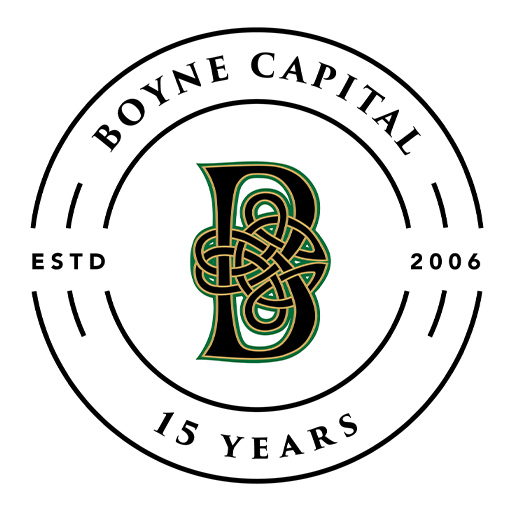Overview: Getting your business’s financial health in shape is critical to its long-term viability and requires a number of steps. A sound financial reporting system provides a true picture of how your business is performing, and whether it is as profitable as you think. You may be surprised… and not in a good way.
The degree of difficulty and complexity in establishing a solid financial reporting and auditing system rises along with the size of the business. In Boyne Capital’s experience, companies that reach $10 million in annual revenue and $2-3 million in EBIDTA should take the measures outlined below to assure the continued financial health of their organization.
Here is a must-see Financial Health Checklist for any business owner contemplating the sale of a business.
Review and strengthen all financial accounting reporting: Be sure you’re accounting for all revenue and expenses, correctly allocating fixed costs, properly managing compensation, understanding cashflow, reserving for contingencies, accurately reporting to tax authorities (and affording your business all benefits to which it is entitled), correctly depreciating capital equipment and unsold inventory, etc. A consolidated accounting and financial systems function is essential for a healthy business.
Establish a regular financial audit schedule: Getting into the habit of conducting regular, independent financial audits will help keep your operation running smoothly. It’s a discipline that, once in place, is easier to conduct and, when done on a regular schedule, can flag any discrepancies or weaknesses in your financial performance.
Tap the resources of a professional accounting firm: Relying on professional accounting services to manage your regular audits, especially in the early stages of your business, pays big dividends. Yes, you can expect to pay $15,000-$20,000 annually for a CPA firm’s services, but the benefits far out-way the costs. An independent professional firm will create a financial reporting system for your business enabling audits that can reveal how your company is really performing, uncover where problems lie, and develop a realistic, defensible EBITDA for the business. Boyne Capital works with professional accounting firms whose services prove vital to our portfolio companies, and we would gladly connect you with one.
Track Key Performance Indicators: You can’t know how you’re doing unless you have a means of measuring your performance. Visualize data over time, analyze your business processes, and identify areas for improvement. Learn your weaknesses and create a plan to strengthen them.
- Set up a data collection and tracking system
- Depending on organization size and complexity, KPIs may be broken down by function, for example production, sales, customer support, etc.
- The metrics used to evaluate your business performance and financial position depend on what type of business you have:
Retail – foot traffic (click-thrus for e-tailers), sales per square foot, sales per employee, customer retention (repeat sales), inventory turnover, gross margins, profit by product
Service – customer complaints, referrals, open service requests, customer acquisition cost, service delivery cost, revenue by employee / customer / service delivered, employee turnover, training costs, etc.
Manufacturing – count, reject / rework percentage, TAKT time, on-time delivery percentage, downtime, production run rate, quality rate, capacity utilization, customer complaints/satisfaction, labor cost, open orders, parts and components inventory levels, etc.
Professional (health care, legal, business consultant) – customer satisfaction / complaints / referrals, appointment bookings / cancellations, revenue by procedure, cost per procedure or service, revenue per employee, monthly revenue, billable hours vs available hours, and more.
Invest in business information technologies: Business information software such as Customer Relationship Management, Enterprise Resource Planning, Management Information Systems, Process Control Systems or other business intelligence tools relevant to your specific type of business provide the structure and data to plan, execute, monitor and evaluate your business’s overall performance.
Hire the appropriate professionals: A growing business will eventually need to hire the financial and accounting talent to manage the financial aspects of your business in house. For a smaller business, a controller level position should suffice. For larger, more sophisticated enterprises, a Chief Financial Officer will be needed. It will require an investment in executive-level salary and in time to find the right person for your organization.
- This may lower your current EBIDTA slightly as the salary will have a direct impact on operating income.
- Consider, however, that when it’s time to sell your business, having in place a CFO and perhaps a COO, your acquiring partner will be assured that your business has been professionally run, and that it will continue to be so should you leave following the sale.
Good Financial Health Depends on Regular Check-ups
Proper financial accounting and reporting are vital quality control measures essential to the health of your business. Without them you risk:
- Reduced Earnings
- Lower Profitability
- Increased Tax Liabilities
- Hidden Expenses
- And Other Potentially Crippling Financial Pitfalls
Looked at another way, a smooth-running financial accounting and reporting operation can improve business performance and profits through:
- Proper Allocation of Capital
- Better Tax Liability Management and Optimized Reserves
- Better Control and Reduced Costs of Parts, Materials and Inventory
- Improved Cost Accounting, More Realistic Product/Service Pricing
- Reduced Accounts Receivables and Shorter Time to Payment
- And Other Financial and Operational Advantages
Above all, sound accounting helps you eliminate surprises, allowing you to plan and execute, rather than react and recover.
Following this checklist will help put your business on the right financial footing. And for business owners looking to sell an equity stake in their company, or the entire business, this checklist provides the path to a successful liquidity event.
Regardless of your situation or motivation, Boyne Capital stands ready to help put your business in shape to pass this all-important Financial Health Check-up.





